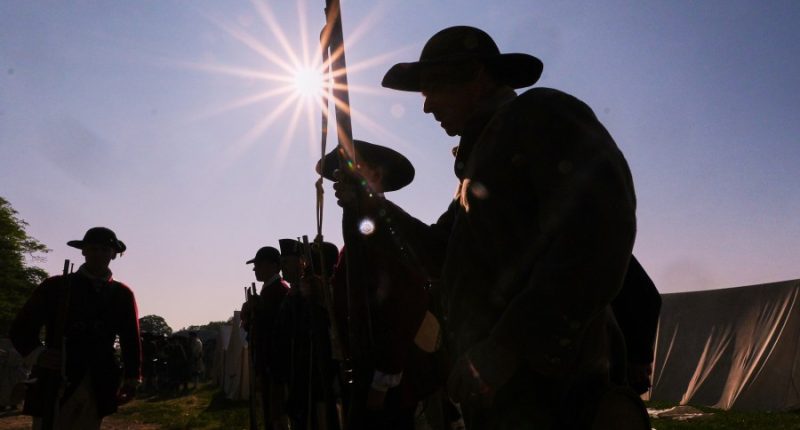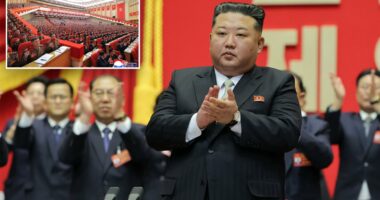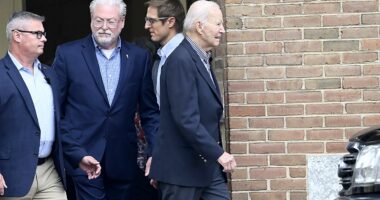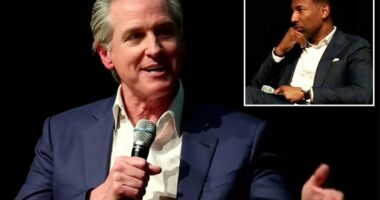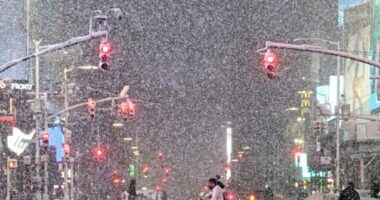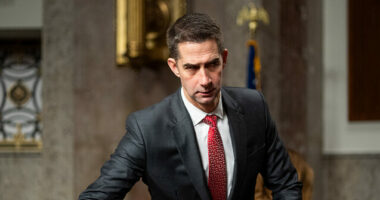Share this @internewscast.com

NEW YORK (AP) — As the U.S. marks the 250th anniversary of the Battle of Bunker Hill, it might take a moment — or more — to remember why.
Start with the very name.
“There’s an element of percussion to it: Battle of Bunker Hill,” remarks award-winning historian Nathaniel Philbrick, whose book “Bunker Hill: A City, A Siege, A Revolution” was released in 2013. “What truly transpired might become indistinct for those not from the Boston area, yet it remains a part of our shared memory and imagination.”
“Few ‘ordinary’ Americans might know about Freeman’s Farm, Germantown, or Guilford Court House as battle sites,” says Paul Lockhart, a history professor at Wright University and author of another Bunker Hill book, “The Whites of Their Eyes,” published in 2011. “However, they can identify Gettysburg, D-Day, and Bunker Hill as battles.”
Bunker Hill, Lockhart adds, “is the great American battle, if there is such a thing.”
Globally, many regard the Battles of Lexington and Concord, which took place in Massachusetts on April 19, 1775, as the onset of the American Revolution. Yet Philbrick, Lockhart, and others point to Bunker Hill and June 17 as the true beginning, marking the first time British and rebel forces engaged in a prolonged confrontation over a particular territory.
A day-long reenactment of the battle got underway Saturday morning with the seaside city of Gloucester standing in for Charlestown. Organizers chose a state park some 35 miles (56 kilometers) from Boston to stage the battle because such activity is prohibited at the actual site.
Hundreds of onlookers watched as sharpshooters positioned on a rocky outcropping fired upon red-coated British sailors landing in the harbor. During the actual battle, British soldiers responded by setting a fire to drive them off and used the smoke to mask their movements.
“We’re in a volatile period, but this is a way that we can really celebrate our heritage and our diverse creation of what became America,” said Andrew Lyter, a reenactor who was overseeing the smaller vessels.
“I teach history at a college, and this is really neat to engage with an audience that’s very interested in being here and learning about their history,” he said.
Bunker Hill was an early showcase for two long-running themes in American history — improvisation and how an inspired band of militias could hold their own against an army of professionals.
“It was a horrific bloodletting, and provided the British high command with proof that the Americans were going to be a lot more difficult to subdue than had been hoped,” says the Pulitzer Prize-winning historian Rick Atkinson, whose second volume of a planned trilogy on the Revolution, “The Fate of the Day,” was published in April.
The battle was born in part out of error; rebels were seeking to hold off a possible British attack by fortifying Bunker Hill, a 110-foot-high (34-meter-high) peak in Charlestown across the Charles River from British-occupied Boston. But for reasons still unclear, they instead armed a smaller and more vulnerable ridge known as Breed’s Hill, “within cannon shot of Boston,” Philbrick says. “The British felt they had no choice but to attack and seize the American fort.”
Abigail Adams, wife of future President John Adams, and son John Quincy Adams, also a future president, were among thousands in the Boston area who looked on from rooftops, steeples and trees as the two sides fought with primal rage. A British officer would write home about the “shocking carnage” left behind, a sight “that never will be erased out of my mind ’till the day of my death.”
The rebels were often undisciplined and disorganized and they were running out of gunpowder. The battle ended with them in retreat, but not before the British had lost more than 200 soldiers and sustained more than 1,000 casualties, compared to some 450 colonial casualties and the destruction of hundreds of homes, businesses and other buildings in Charlestown. Bunker Hill would become characteristic of so much of the Revolutionary War: a technical defeat that was a victory because the British needed to win decisively and the rebels needed only not to lose decisively.
“Nobody now entertains a doubt but that we are able to cope with the whole force of Great Britain, if we are but willing to exert ourselves,” Thomas Jefferson wrote to a friend in early July. “As our enemies have found we can reason like men, now let us show them we can fight like men also.”
___
Rodrique Ngowi in Gloucester, Massachusetts, and Holly Ramer in Concord, N.H. contributed to this report.
